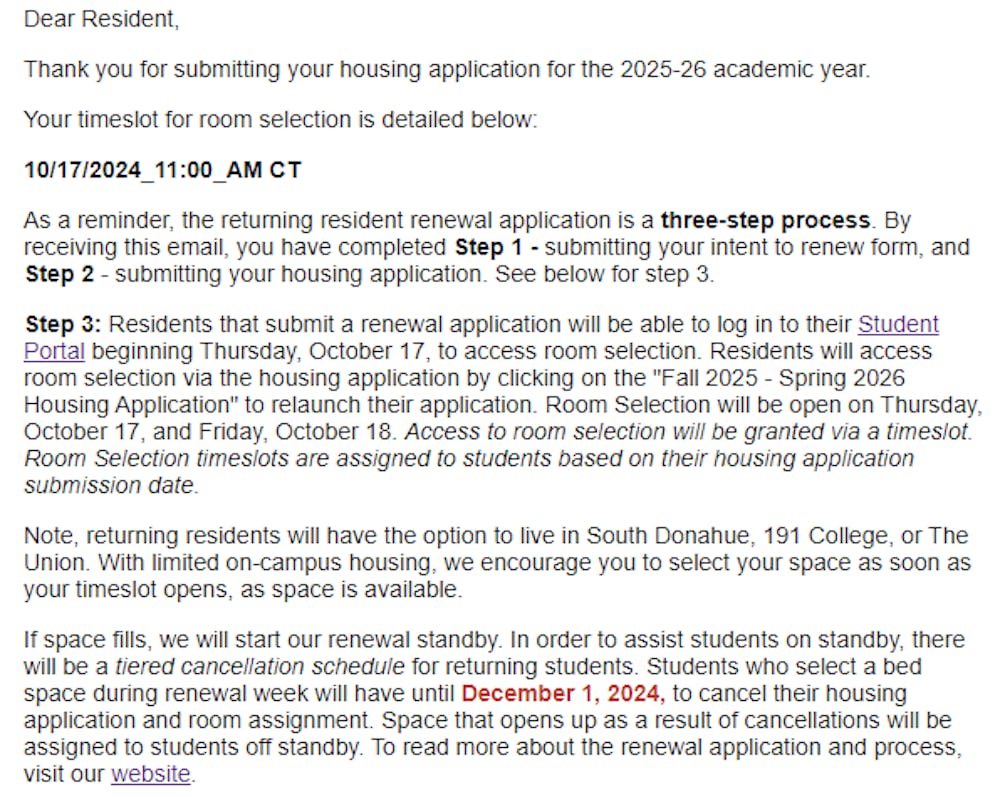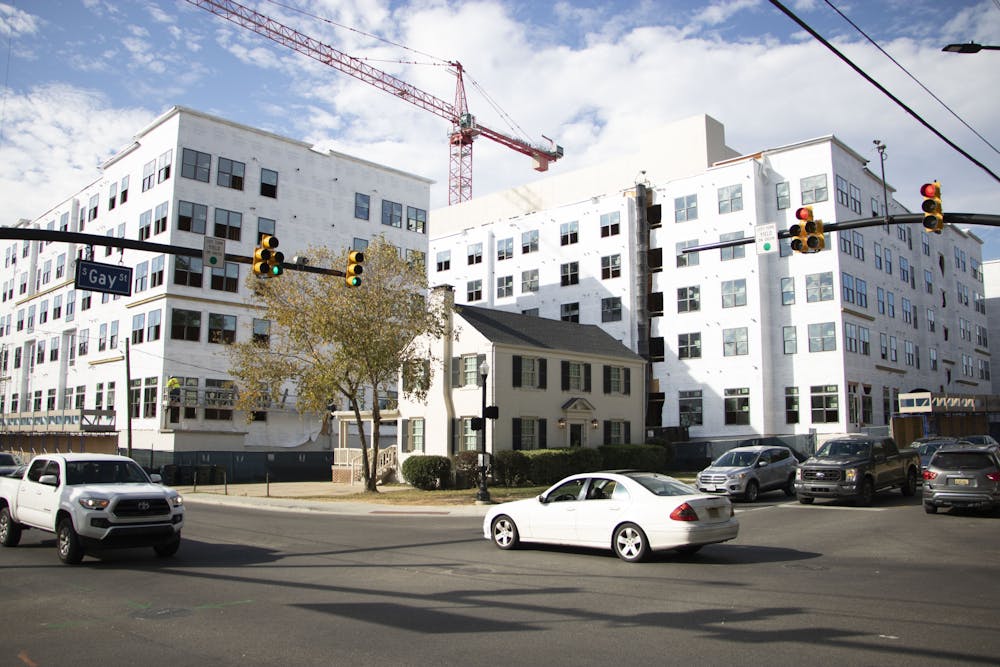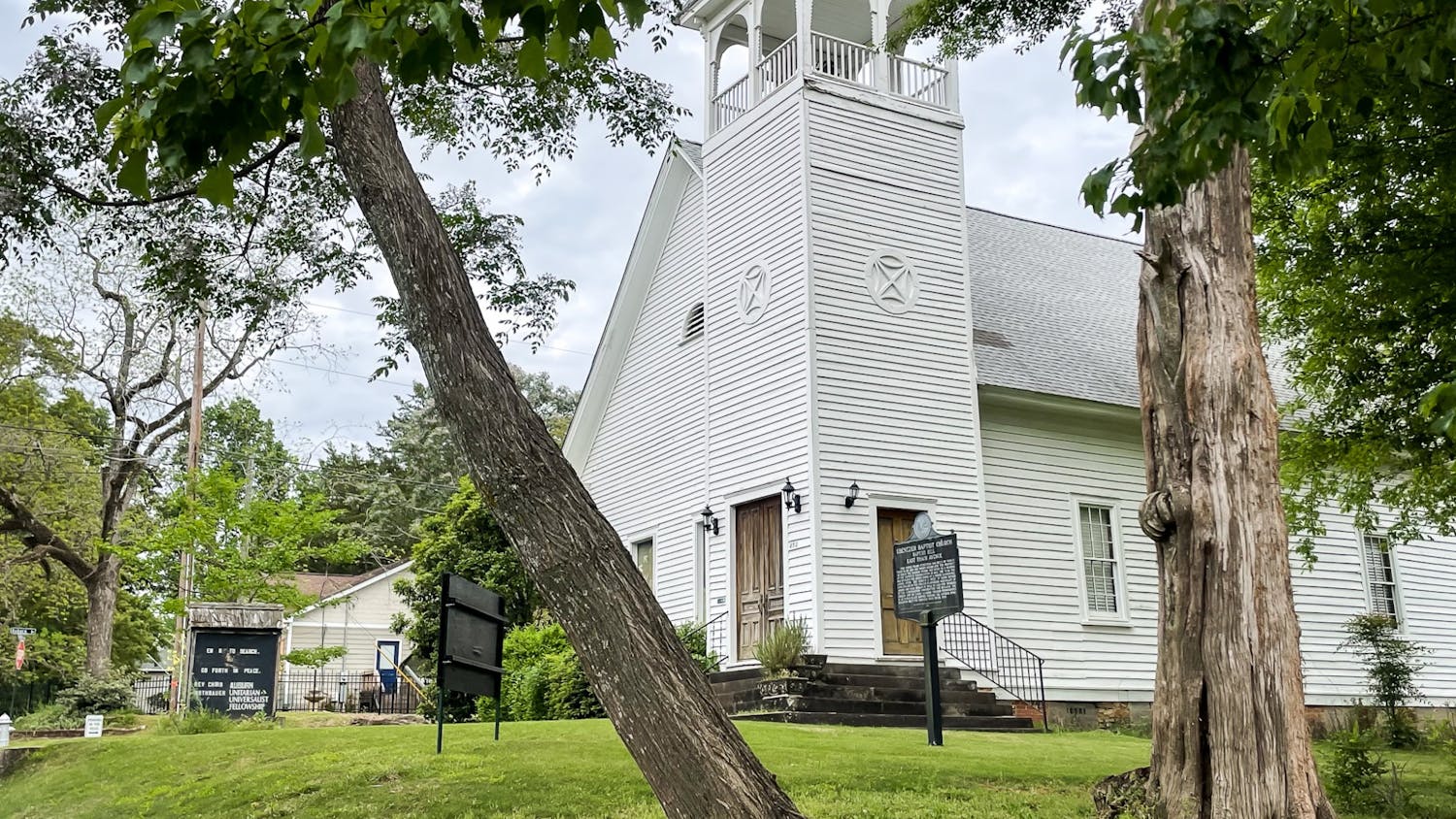Auburn University has reported a record number of students admitted and enrolled in the university for three consecutive years. For the 2024-25 school year, Auburn reported 34,145 students currently enrolled as compared to the 2023-24 school year, where 33,015 students were enrolled.
Obviously, Auburn is a growing campus, and it is one of the largest colleges in the state. However, the growth that Auburn is experiencing, not only as a university but also as a city, isn’t sustainable for the people who live there.
The Loveliest Village on the Plains is growing extremely quickly. As more and more students are coming in, there is an apparent overcrowding issue.
During these years of “record enrollment,” students find themselves without a spot in a required class. Even in a 1,000 or 2,000 level class, the number of spots allocated for students isn’t always enough for the amount of students required to take the course. These core classes and gen-eds fill fast, as they are typically required for most first and second year students to advance through the path to their degree.
Of course, spots are allocated based on the number of seats in the room, however, in some cases there will be more spots offered in the class than there are seats in the lecture hall. This over-enrollment in the class leaves some students without seating. This is typical practice for “weed out” classes, because students are expected to drop the class and create a sufficient number of seats. However, it is becoming more and more popular for regular (non-weed out) classes to have a lack of seats for students enrolled in them.
The university’s reported student-to-faculty ratio is 20:1 (as of the 2023-24 school year), and core classes tend to be less intimate. Yet leaning into this ratio, it would be better for students and faculty alike to have more frequent, smaller classes in the core setting when students are adjusting to college life, instead of classes with hundreds of students.
If core classes are offered more frequently, students that need those classes would be able to find a spot in the class when registering, and if the seats that are listed on Tiger Scheduler are less than that in the room, there’s more opportunity for each student to have a seat.
Similarly, there are further disruptions for students, often found when getting to class or elsewhere in a timely manner. Infrastructure in Auburn was not built to sustain the growing number of university affiliates, especially when it comes to roads and sidewalks.
The roads here are small, most being single lane, with little to no turning or bike lanes, especially around campus. Realistically, there’s little space for bikes on or off campus, as it’s illegal to bike on the sidewalk in Auburn and around the state of Alabama.
For students that don’t drive or bike, there’s the option of walking or taking the Tiger Transit bus system. However, Tiger Transit isn’t always on a the most punctual schedule and often take longer than what someone may expect due to traffic on the route to and from campus. As for walking, sidewalks are frequently closed due to the construction, events downtown or athletics.
Furthermore, with the "record number" of enrollment, the Tiger Transit buses are packed to the brim at almost every route. Getting a spot on the bus is more difficult than ever before, and students are cramming shoulder-to-shoulder just to get to class.
Along with having less seating and peripatetic space for students, there’s also less housing space for students and other members of the community.
Those that live on campus have issues with availability. Auburn has six on campus options for living for the 2025-26 school year. Students who already live on campus and have the desire to do so again for the next year had the opportunity to reapply for housing on Oct. 17 and Oct. 18, 2024 — ten months before their move-in date.
The typical renting cycle has renewal 60 days before lease end date and signing 20–24 days before move in. Obviously, a student schedule will be different because most leases are on academic schedules, and students need to plan more than 20–24 days in advance. However, the current cycle is extremely inconvenient and severe.
Candidates for on-campus housing chose their top three spaces they’d like to live and they were given a time slot so they could pick their room based on how soon they turned in their intent to renew form. When students went to apply, they were either met with their top three choices of living or, in the case of students applying in the afternoon on the 17th or any time on the 18th, were met with the notion of housing being full for next academic year.

University housing selection email for 2025-26. | Contributed by Brychelle Brooks

University housing portal statement that shows housing is full for 2025-26. | Contributed by Brychelle Brooks
This is due to reserved housing for first-year students, as well as an overall lack of housing. This is only the process for obtaining on-campus housing. Off-campus processes and timelines are similar, with skyrocketing prices. It is hard for students to gain access to housing when spaces fill up so quickly and are becoming more expensive.
As for those who live off campus, they’re faced with many strifes when it comes down to their living situation. Residents typically start looking for housing or begin the renewal process in the early months of the fall semester. With the overflow of students that didn’t get an on campus space, it trickles down to living off campus and signing a lease.
Many college students are working multiple jobs to pay their rent and tuition if their parents don't pay for everything. Tuition and rent are both raised each year, granted, the increase in rent might not be due to the demand for a living space but instead from a clause in the lease that says there will be a rent increase. Either way, housing and school are both expensive and because of this, a college experience is becoming less accessible to students at Auburn.
Off campus housing options are typically marketed to be really nice and will sometimes even be marketed as “luxury” student housing. Those that are marketed as “luxury” typically have some type of profitable amenity, like a pool view, high ceilings, in house washer and dryer or a game room. While this is nice, it also increases the prices of these living facilities, making them inaccessible for students with severe financial restrictions.
College students don't need stainless steel appliances or vaulted ceilings. They need a place to rest, do homework, store clothes and keep food. It seems like the student housing market is more focused on creating elite, luxury living than creating affordable and basic housing options.
This is forcing some students reevaluate their enrollment at Auburn University because it is too expensive to pay for tuition and rent. A student can only work so many jobs before it becomes unviable to continue as a student and a renter in this city. Unfortunately, this is a decision several students are having to make.

A website description of Luxury amenities at The Standard apartments | Contributed by Brychelle Brooks

A website description of The Glenn apartments | Contributed by Brychelle Brooks
In addition to emerging luxury living spaces, there are the numerous hotels being built around the city. For instance, the newly opened Graduate Hotel by Hilton. These hotels are occupying spaces where student housing could go, not only apartments but dorms as well. They’re also being built more quickly compared to any other student housing that Auburn has commissioned or an outside company has commissioned.
So instead of focusing on students or residents who live in Auburn for the majority of the year, weekend guests or visitors are being prioritized. Again, this growth and obsession with growth, profits and bringing in the "new," comes at a cost to the people who are already here.
We need space and affordability. Continuing to compromise our elbow room for a leg up in the "luxury" or "record setting" world is not the right decision, but Auburn keeps making it. Ultimately, the only outcome that choice will have is compromising our identity as "The Loveliest Village on the Plains" for the appearance and status of being elite, modern and profitable.
Do you like this story? The Plainsman doesn't accept money from tuition or student fees, and we don't charge a subscription fee. But you can donate to support The Plainsman.

Brychelle Brooks, senior majoring in public and professional writing with a minor in information systems, has been with The Auburn Plainsman since August 2023. She previously served as the Campus Reporter, Opinion Editor and Newsletter Editor. She is currently serving as the Editor-in-Chief.





